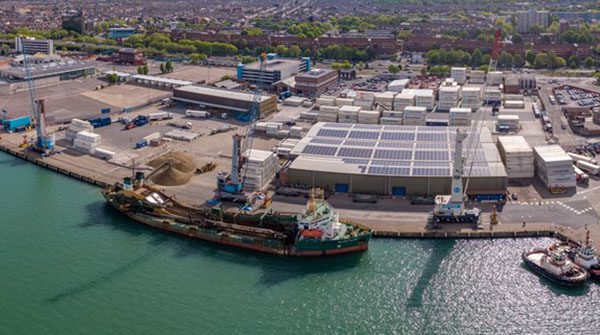News
Certas assists Portico to move to low emission operations
Portico, a deep-water cargo terminal owned by Portsmouth City Council and based within Portsmouth International Port, is taking action to minimise its impact on local air quality by powering its cargo handling operations with a low emission alternative fuel.The business is working with Certas Energy to implement the use of a cleaner burning diesel alternative, Shell GTL Fuel, in its port side fleet, plant and machinery.
Exclusively supplied in the UK by Certas Energy, Gas-To-Liquid (GTL) is a paraffinic fuel known for its improved combustion properties. It is proven to reduce emission levels of harmful pollutants such as nitrogen oxide (NOx) and particulate matter (PM) to immediately improve local air quality.
Trials have shown that Shell GTL Fuel can reduce NOx emissions by up to 37% and PM by up to 50% compared to conventional diesel. As a drop-in fuel, Shell GTL Fuel can be used as a direct replacement for diesel to improve air quality without the need for expensive modifications to existing engines or investment in infrastructure.
The fuel is free of unwanted components such as sulphur, metals and aromatics, which make it non-toxic, biodegradable and less harmful to the environment. This is a significant added benefit for Portico, which works in close proximity to marine ecosystems.
Shell GTL Fuel also produces less odour, smoke and engine noise than conventional diesel to create a more pleasant working environment for port operatives. Its improved engine starting performance in colder conditions makes it a year-round reliable fuel choice.
The low emission fuel will be used across Portico’s extensive fleet of vehicles, plant and machinery, helping to reduce ongoing maintenance costs.
Steve Williams, operations director at Portico, said; “We are constantly pursuing cleaner ways of working to minimise our environmental impact in the port area and for the local community. By transitioning to a cleaner burning fuel with Certas Energy, we can reduce harmful local emissions of PM and NOx to make an immediate and positive difference to local air quality.”
